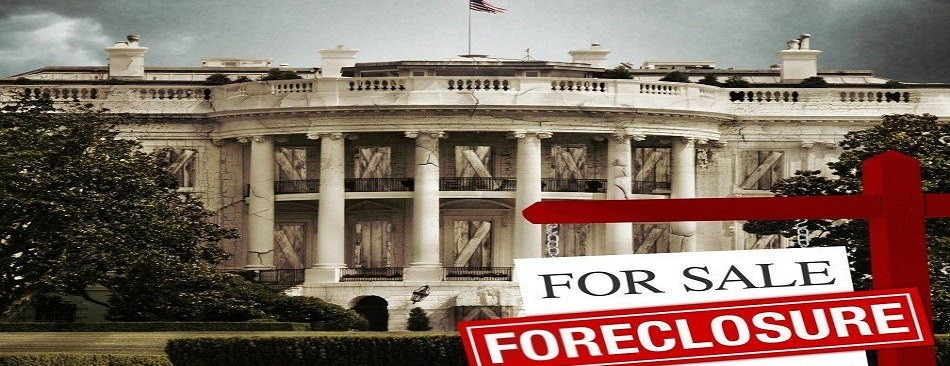
{Important Note: Reviewing and forecasting the institutions’ plans is not a endorsement. The fact that the member nations are not planning to abolish fractional reserve banking means their plans continue to be a destructive, debt based system.}
The growing number of RMB Bilateral Swap Agreements between the People’s Bank of China and central banks around the world have rapidly been implementing transaction centers in various financial districts in many nations to transform the Chinese Yuan into a “freely usable” currency.
Many nations are clearly desiring to transition out of the 70 year U.S. Dollar reign as the world’s reserve currency, the BRICS embrace a “multipolar” monetary system and strengthen the “United Nations at its center and foundation“.
My forecast is that the IMF will eventually accept the yuan (RMB) along with the dollar (USD), and euro; with or without the U.S. votes in the IMF.
The IMF is scheduled to conduct the next quinquennial review for the basket of currencies that make up the Special Drawing Rights (SDR) in July 2015. Will bankers have the RMB ready by that date?

Apparently the Orwellian newspeak at financial summits by the BRICS and G20 officials about structural reforms to the monetary system has the Taxation system, RMB and Gold as major components. My unanswered questions are:
1. Will the IMF be weakened or strengthened as a financial institution during that transition?
2. Will Public resistance doom the globalists’ monetary policies?
The questions are time based and the answers will be revealed in future years. ~Ron
 The current monetary system is in crisis, the central bankers are aware of this, and plan a managed exit from the USD structured system, aka “single world dollar system“.
The current monetary system is in crisis, the central bankers are aware of this, and plan a managed exit from the USD structured system, aka “single world dollar system“.
Yuan Has Real Shot at IMF Blessing on Reserve Status
By Andrew Mayeda and Fion Li Dec. 11, 2014 via: bloomberg.com
For the first time, China has a real shot at getting the International Monetary Fund to endorse the yuan as a global reserve currency alongside the dollar and euro.
In late 2015, the IMF will conduct its next twice-a-decade review of the basket of currencies its members can count toward their official reserves. Including the yuan in this so-called Special Drawing Rights system would allow the IMF to recognize the ascent of the world’s second-biggest economy while aiding China’s attempts to diminish the dollar’s dominance in global trade and finance.
China would need to satisfy the Washington-based lender’s economic benchmarks and get the support of most of the other 187 member countries. The Asian nation is likely to pass both tests, said Eswar Prasad, who until 2006 worked at the IMF, including spells as heads of its financial studies and China divisions.
“It will certainly help China’s objective of making the renminbi a more widely-used currency,” said Prasad, a professor of trade policy at Cornell University in Ithaca, New York, and senior fellow at the Brookings Institution in Washington. Renminbi is China’s official name for the yuan.
Reserve-currency status for the yuan would make central banks, particularly those in developing economies, more eager to hold yuan assets and “diversify at the margin away from dollars,” as well as euros, yen and Swiss francs, Prasad said.
Passing Test
Approval hinges partly on whether the IMF reverses its 2010 decision that the yuan wasn’t “freely usable.” There’s growing evidence that the currency may now pass this test, after already qualifying on the IMF’s other condition of being a large exporter.
The proportion of China’s trade that’s settled in yuan has risen to about 20 percent; the market for yuan-denominated Dim Sum bonds has grown to $72.9 billion from nothing in just seven years; and the government has loosened controls on foreigners’ access to its financial markets. China has also signed agreements to trade the yuan freely in cities from Hong Kong and Singapore to Frankfurt and London.
The IMF said in an e-mailed statement that since the last review, “there have been a number of developments regarding the RMB’s international use, and the upcoming review would take stock of these developments.” The IMF’s board will conduct the review in October after starting with an informal briefing in May, Managing Director Christine Lagarde said in a report published today.
SDR status will happen when conditions are right, and governments and officials, “including those working at the IMF,” are aware of the appetite in global markets for the yuan, People’s Bank of China Deputy Governor Yi Gang said in October.
The PBOC didn’t respond to a faxed request for comment.
‘Conducive’ Environment
There’s a “very high chance that the yuan will be included in the SDR,” Nathan Chow, an economist at DBS Group Holdings Ltd. who previously worked at the Hong Kong Monetary Authority. “Both political and economic circumstances are conducive,” Hong Kong-based Chow said.
China’s currency will probably be more widely used than the yen and the pound in financial markets and trade in a few years, and the government should lobby other countries to have it included in the SDR basket, the Shanghai Development Research Foundation said in a report this year.
The yuan’s share of money transferred around the globe rose to a record 1.72 percent in September, making it the seventh most-used currency, according to the Society for Worldwide International Financial Telecommunication, the La Hulpe, Belgium-based cooperative that processes international funds transfers for more than 10,000 banks and other customers in 215 countries.
Fixed Rates
The IMF created the SDR in 1969 to support the Bretton Woods system of fixed exchange rates after supplies of gold and dollars proved inadequate. Owning SDRs gives countries a claim to the four currencies in the basket: the dollar, euro, yen and U.K. pound.
About $300 billion in SDRs are outstanding globally, according to the IMF. They accounted for $52 billion of the $135 billion in U.S. official reserve assets as of Nov. 28, Treasury Department figures show.
The yuan is still dwarfed by the dollar in terms of usage in international trade and finance. When quoting countries’ foreign reserves, the IMF lumps it into its “other currencies” category, which accounts for just 3 percent of the $6.3 trillion in allocated holdings. The dollar has a 60.7 percent share, with 24.2 percent taken up by the euro and 3.9 percent by the pound.
U.S. Veto
The U.S. could potentially veto the yuan’s inclusion in the SDR basket because the change would require the support of as much as 85 percent of voting shares on the IMF’s executive board. The U.S. has 17 percent of the votes. The IMF said it’s too soon to say whether the move would require 70 percent or 85 percent of the vote under the institution’s bylaws.
Holly Shulman, a Treasury Department spokeswoman, said in an e-mail that it’s too early to speculate on the outcome of the IMF review.
China probably hasn’t done enough to liberalize controls over its currency and financial markets to sway the U.S., said Edwin Truman, who was assistant secretary for international affairs at the Treasury Department during the Clinton administration. The Asian nation maintains restrictions on capital flows to prevent speculators from inflating the economy.
Currency Controls
The IMF’s requirement for a “freely usable” currency “basically means there aren’t any controls on getting into and out of a currency, and China’s a good ways from that,” said Truman, now a senior fellow at the Peterson Institute for International Economics in Washington.
Even so, China has pledged to move toward a market-determined exchange rate, and the yuan’s gains this year may help reassure U.S. officials who have accused the PBOC of debasing its currency for economic advantage.
Even after a 1.2 percent drop since the end of October, the yuan is still up 0.3 percent versus the dollar in the second half, the only one of 31 major currencies tracked by Bloomberg to have strengthened.
SDR status would be a “relatively easy” way for the world to acknowledge China’s economic ascendancy, said Benjamin J. Cohen, a professor of international political economy at the University of California at Santa Barbara. It overtook Japan to become the world’s second-biggest economy in 2010.
“It’s very difficult to imagine they won’t include the yuan in the basket,” Cohen said. “China has to be mollified.”
To contact the reporters on this story: Andrew Mayeda in Ottawa at amayeda@bloomberg.net; Fion Li in Hong Kong at fli59@bloomberg.net
To contact the editors responsible for this story: Chris Wellisz at cwellisz@bloomberg.net; Robert Burgess at bburgess@bloomberg.net Scott Lanman, Paul Armstrong
.
RELATED:
https://www.imf.org/external/np/sec/pn/2010/pn10149.htm
Click to access 0212gt_schenk1.pdf
________________________________________________


It is going to be interesting to see what happens next. I noticed a lot of gold in the picture. You gotta love that gold!
Leslie
LikeLike
The gold is part of their value system, and the IMF has it weighted in their basket of currencies (SDR).
Their plans revalue currencies with a gold component…
Hopefully the People will choose a different value system, value freedom and life would be a great start to a new paradigm.
LikeLike
Well I agree with you there!
Leslie
LikeLike
Reblogged this on Spartan of Truth.
LikeLike
IMF mulls ‘Plan B’ of quota reform without U.S.
http://www.china.org.cn/business/2014-12/13/content_34308444.htm
Xinhua, December 13, 2014
Christine Lagarde, managing director of the International Monetary Fund (IMF), said Friday that the organization is disappointed with the U.S. inaction to ratify the governance and quota reform, and is ready to discuss alternative ways without the United States to give emerging countries greater voting power.
“The IMF’s membership has been calling on and was expecting the United States to approve the IMF’s 2010 Quota and Governance Reforms by year-end. Adoption of the reforms remains critical to strengthen the Fund’s credibility, legitimacy, and effectiveness, and to ensure it has sufficient permanent resources to meet its members’needs,” Lagarde said in a statement.
“I have now been informed by the U.S. Administration that the reforms are not included in the budget legislation currently before the U.S. Congress. I have expressed my disappointment to the U.S authorities and hope that they continue to work toward speedy ratification,” she said.
“As requested by our membership, we will now proceed to discuss alternative options for advancing quota and governance reforms and ensuring that the Fund has adequate resources, starting with an Executive Board meeting in January 2015,” she added.
To reflect the growing and underrepresented influence of the emerging economies, the IMF quota reform calls for a 6 percent shift in quota share to emerging economies. It will lift China, which still has less voting power than the Benelux countries ( Belgium, Holland and Luxemburg), to the third largest shareholder. Shares for Russia, India and Brazil will also see hefty rise.
The reform, however, has been delayed for four years due to the block of the U.S. Congress as the U.S. retains a veto. Lagarde has been grilled by this issue and hinted at a “Plan B” in April if the U.S. fails to endorse the reform by year-end.
http://www.china.org.cn/business/2014-12/13/content_34308444.htm
LikeLike
Reblogged this on Satu Insan – Malaysia.
LikeLike